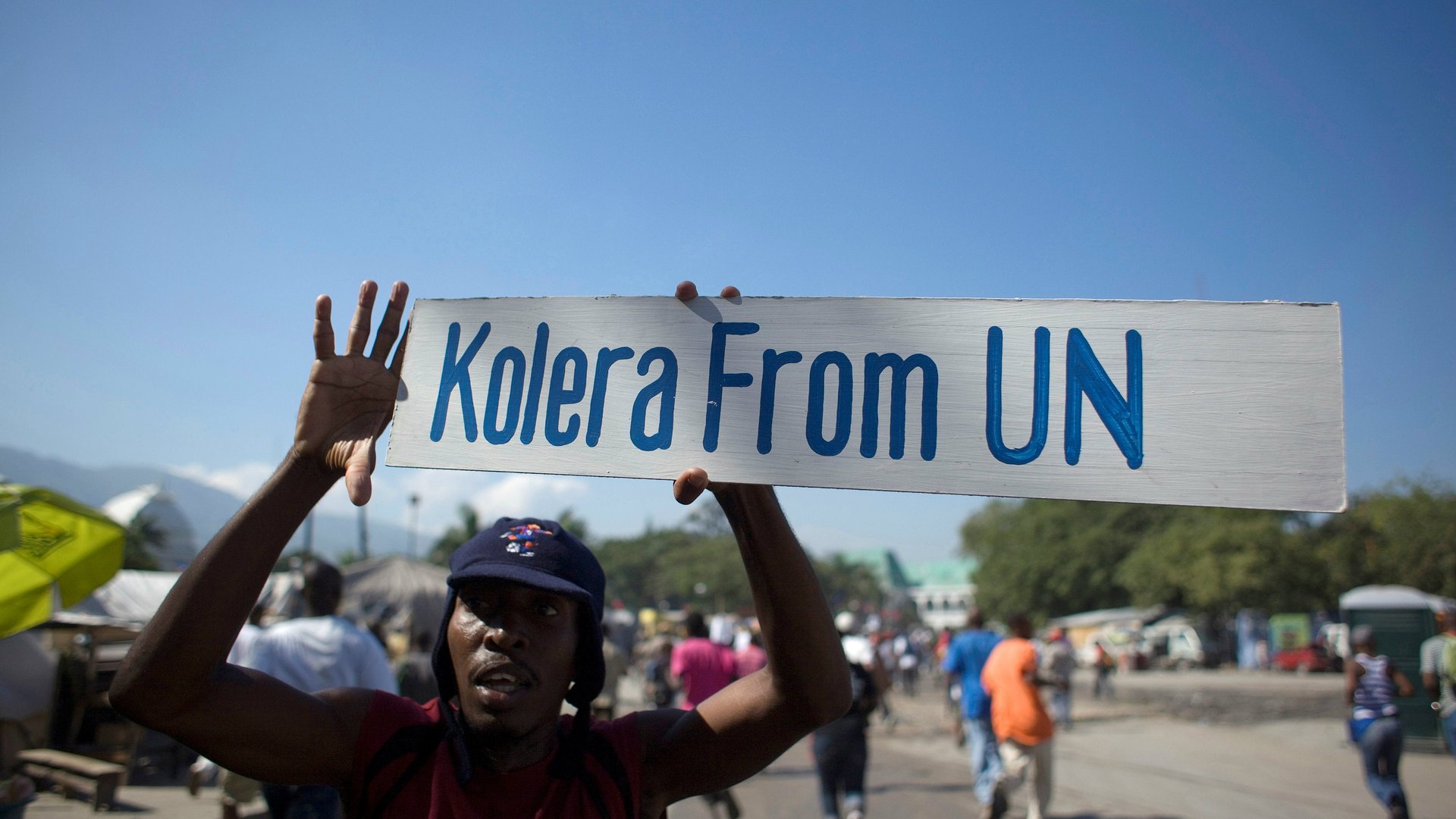The UN finally concedes that it had a role in Haiti’s devastating 2010 cholera outbreak
After five years of denial, the UN has admitted its part in bringing cholera to Haiti during disaster relief measures following the 2010 earthquake that devastated the country. Hundreds of thousands of Haitians have caught the disease from the ongoing outbreak, which has resulted in an estimated 10,000 deaths.


After five years of denial, the UN has admitted its part in bringing cholera to Haiti during disaster relief measures following the 2010 earthquake that devastated the country. Hundreds of thousands of Haitians have caught the disease from the ongoing outbreak, which has resulted in an estimated 10,000 deaths.
In an email to the New York Times, Farhan Haq, deputy spokesman for the UN secretary general, said that “over the past year, the UN has become convinced that it needs to do much more regarding its own involvement in the initial outbreak and the suffering of those affected by cholera.”
It is the first time a UN spokesperson has acknowledged the agency’s role in causing the first cholera outbreak the country has seen in almost a century. The disease is now endemic in Haiti.
The admission comes after the Times obtained a confidential report authored by New York University professor of law Philip Alston, an adviser the UN. According to the Times, the strongly worded report argues cholera “would not have broken out but for the actions of the United Nations” and laments how the organization’s cholera eradication program in Haiti has failed. Alston says that the UN’s refusal to accept responsibility for the outbreak undermines its credibility, integrity, and ability to uphold human rights.
Investigations of the outbreak pinpointed the first cases to an area occupied by UN peacekeepers who had recently been reassigned from Nepal, which at the time was besieged by its own eruption of cholera. They likely unwittingly carried the disease into Haiti and contaminated water supplies there with human waste. Peacekeepers were not screened for cholera bacteria prior to their deployment, and sanitation was poor in the UN’s temporary housing in Haiti; leaky sewage pipes were in part to blame for the spread of the disease there.
A 2011 report (pdf), commissioned by the UN and conducted by an independent body of experts, found that “the evidence overwhelmingly supports the conclusion that the source of the Haiti cholera outbreak was due to contamination of the Meye Tributary of the Artibonite River with a pathogenic strain of current South Asian type Vibrio cholerae as a result of human activity.” It stressed, however, that the outbreak “was not the fault of, or deliberate action of, a group or individual.”
The outbreak was devastating in a country that had already lost much of its infrastructure in the earthquake. Haiti’s residents were further angered by the UN’s refusal to admit any part in the outbreak. A group of 5,000 residents are currently attempting to sue the organization, filing a class action lawsuit in a New York court in 2013, but the UN claims diplomatic immunity against any legal action. The suit was dismissed but is pending an appeal.